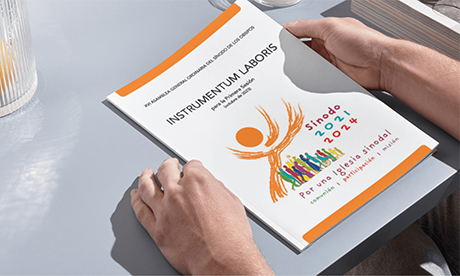The working paper for this October’s synod of bishops in Rome has been published, the NZ Catholic Bishops Conference (NZCBC) says.
The Vatican-published document – called the Instrumentum Laboris (or Working Instrument) – is based on 108 national summaries of bishops’ conferences from around the world presented to the General Secretariat.
It is not a magisterial document or a catechism, but a way to encourage prayer, dialogue, discernment and the “maturing of a consensus”, according to an explanatory paper.
The second round of the Synod on Synodality is to focus more on how decision-making processes in the church can be made more transparent at all levels.
The NZCBC also says the General Secretariat considered submissions from the 300 parish priests from around the world who attended a three-day working session in Rome in April, including Whanganui Parish Priest Fr Craig Butler.
The working paper
The working paper consists of five sections – the introduction, a section on “foundations” of the understanding of synodality, and three “perspectives” sections covering relationships, paths and places.
The NZCBC says the assembly will conclude with a final document,
After that, the synodal process will continue as “the entire People of God in each local Church will be called to concretise the call to grow as a synodal missionary people”.
Transparency, accountability, synodality
The working paper focuses particularly on the need for transparency and accountability, and also on the role of women in the Church.
“A synodal church needs a culture and practice of transparency and accountability, which are essential to foster the mutual trust necessary to walk together and take co-responsibility for the common mission” the working paper says.
Demands for transparency and accountability are especially high-profile because of the Church’s loss of credibility due to sexual abuse and financial scandals.
The paper also emphasises the fundamental need to make synodality visible in the Church through concrete changes.
“Without concrete changes, the vision of a synodal Church will not be credible, and this will alienate those members of the people of God who have drawn strength and hope from the synodal way.”
The need to recognise and strengthen the position of women in all areas of Church life has become clear in the course of the synodal process, the paper says.
“The contributions from all over the world called for a broader participation of women in all phases of church decision-making processes as well as better access to positions of responsibility in dioceses and church organisations in accordance with existing regulations.”
The Australian Bishops Conference welcomes the Instrumentum Laboris’ publication.
President Archbishop Timothy Costelloe says the working document “will help guide the members of the second assembly of the Synod during their meeting in October in Rome.
“The fruits of that meeting and the consensus that emerges will be entrusted to the Holy Father. He will then, after his own prayerful discernment, offer guidance and direction for the universal Church as it enters the implementation phase of the synodal journey.”
Source
